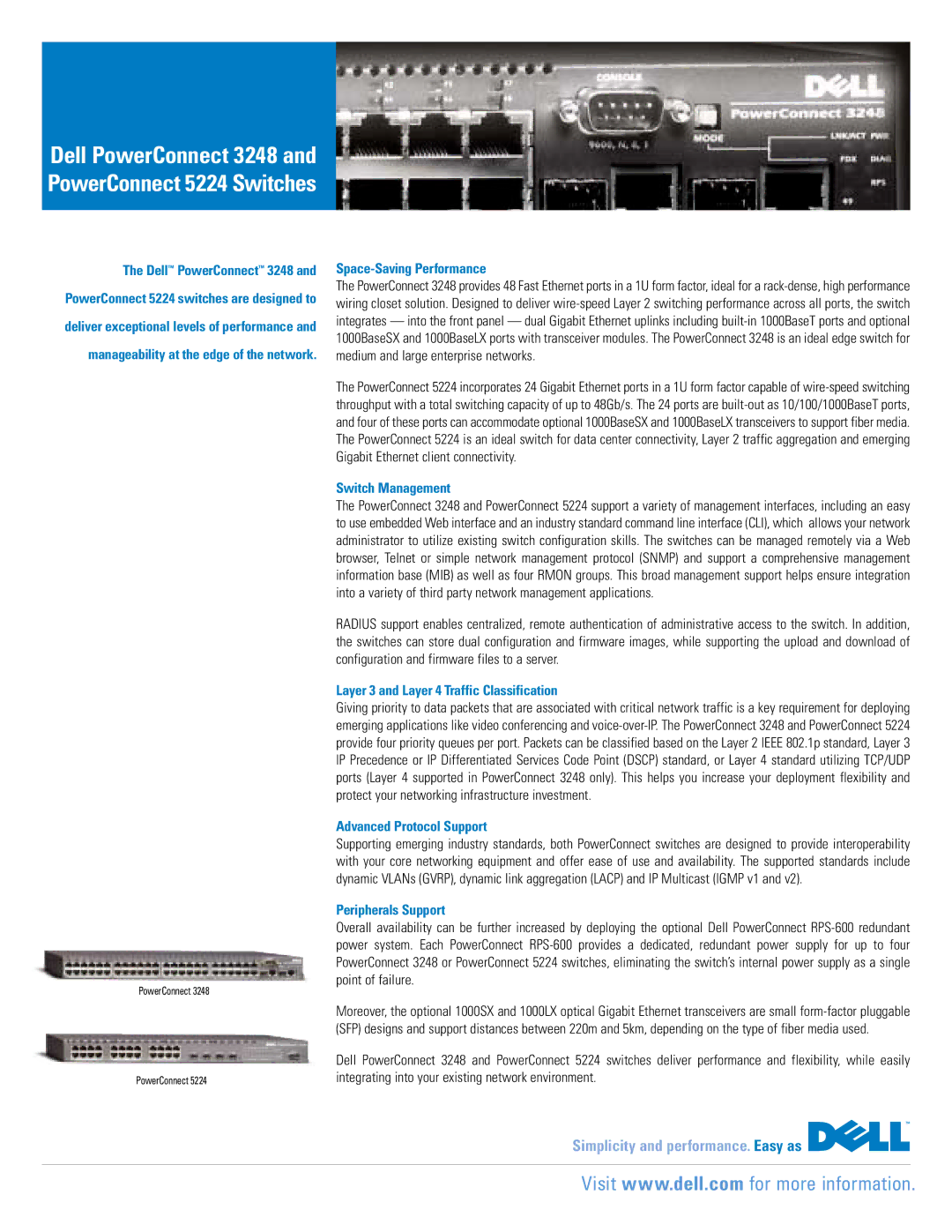3248, 5224 specifications
The Dell PowerSwitch 3248 and 5224 are advanced network switches designed to meet the needs of modern organizations seeking high-performance networking solutions. With a focus on scalability, reliability, and flexibility, these models cater to both small businesses and enterprise environments, making them popular choices for networking infrastructure.The Dell PowerSwitch 3248 is a 48-port switch that features 10 Gigabit Ethernet capabilities. It is ideal for environments that demand high throughput and low latency. One of its standout features is its Layer 2 and Layer 3 capabilities, providing both basic and advanced network management. The switch supports a range of protocols including VLAN, Spanning Tree Protocol, and Link Aggregation, offering users the ability to segment network traffic effectively and optimize performance.
In addition, the 3248 model includes Power over Ethernet (PoE) support, allowing it to deliver power along with data over Ethernet lines. This feature is particularly useful for connecting devices like IP cameras, phones, and wireless access points, eliminating the need for additional power supplies. The fanless design of the switch also ensures quiet operation, making it suitable for office environments.
On the other hand, the Dell PowerSwitch 5224 is a versatile 24-port switch that also provides 10 Gigabit Ethernet capabilities, making it suitable for more compact networking setups. It shares many of the same features as the 3248 model, including Layer 2 and Layer 3 support, VLAN tagging, and a comprehensive suite of security features to protect networks from unauthorized access.
Both switches are equipped with Dell’s Open Networking technology, offering users the flexibility to deploy different operating systems and manage their network according to specific needs. This technology allows for seamless integration with existing network architectures while promoting innovation through open-source solutions.
Furthermore, both models boast advanced management features, including a web-based GUI, CLI support, and SNMP capabilities. These functionalities make configuration, monitoring, and troubleshooting more straightforward and efficient.
In summary, the Dell PowerSwitch 3248 and 5224 provide robust networking solutions with impressive scalability, flexible management options, and essential features that cater to modern networking demands. Whether for small businesses or large enterprises, these switches deliver reliability and performance that organizations can rely on for their networking needs.

